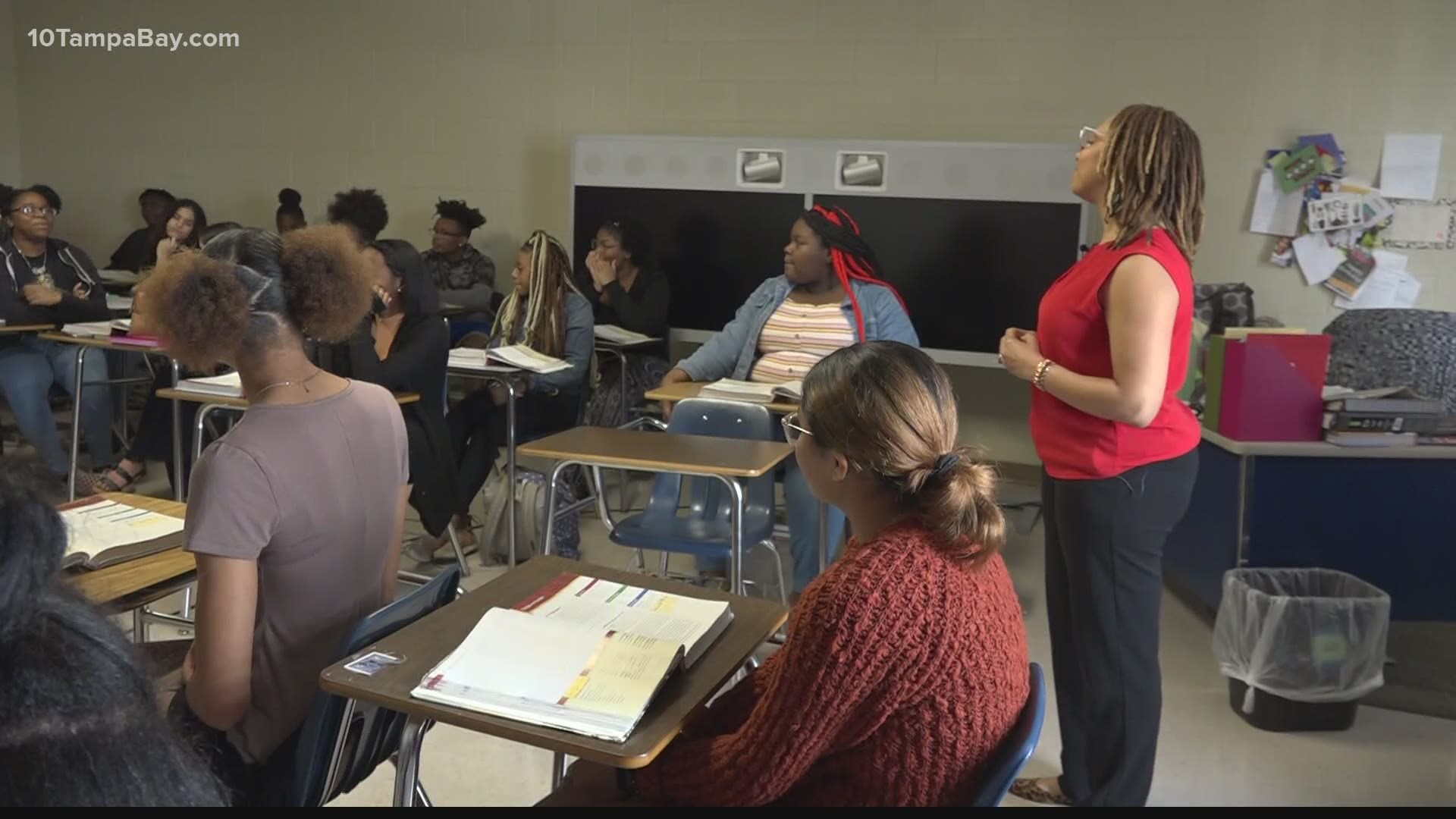GAINESVILLE, Fla. — A Florida union chapter representing thousands of faculty members claims the University of Florida wants professors to remove words like "critical" and "race" from syllabi and course descriptions.
UF's United Faculty of Florida chapter has filed a grievance against the university.
According to a press release from the organization, UF violated academic freedom when it "got heavily involved in curriculum matters pertaining to race and anti-racism, and their implications in light of HB233 and HB57."
"Faculty members in the College of Education were informed by the associate provost and college administrators that they would not approve a concentration of study because it includes the words 'critical' and 'race' and advised changing syllabi and course descriptions to appease the Governor," the United Faculty of Florida chapter wrote.
HB233, which became law in July, required the State Board of Education to have each college or university across Florida conduct an annual assessment of intellectual freedom and viewpoint diversity.
The survey must consider "the extent to which competing ideas and perspectives are presented and members of the college community, including students, faculty, and staff, feel free to express their beliefs and viewpoints on campus and in the classroom," the law's text reads.
The union chapter filed its grievance on Nov. 28 after it says the university violated the Academic Freedom & Responsibility and Nondiscrimination articles of its Collective Bargaining Agreement.
"By censoring the professor and halting the progress of the program and his academic freedom, top administrators violated their own signed agreements in favor of perceived threats from politicians," the organization wrote.
Associate Professor Dr. Christopher Busey, who was involved in filing the grievance, issued the following statement:
“As a first-generation alum, and now faculty, I am disheartened to have taken this step to file a grievance against the University of Florida. I was recruited to the university to engage in scholarship, teaching, and service for the betterment of our university, local, and statewide communities. As an alum, I am also aware of how much former students and faculty endured to create this space for us to teach and conduct research towards realizing a better democracy. Our collective efforts and freedom of speech should never be censored, but instead cherished as a key principle of this university which should act as a beacon for the state of Florida and the nation.”
10 Tampa Bay reached out to the University of Florida for comment. A spokesperson emailed the following statement:
"Pursuant to state law, specifically F.S. 1012.91, any grievance matter would be confidential and therefore we are unable to publicly acknowledge whether a grievance has been filed. However, the information in the documents you provided contains a number of inaccuracies, and we will address them through the appropriate processes."
The grievance isn't the only reason UF has been making headlines as of late. The university came under fire after it prohibited three professors from testifying on Florida's implementation of a voting restrictions law.
UF would later reverse its stance and allow the professors to testify as long it was done pro bono, on their own time and did not use any university resources.
“Once again, administrators at the University of Florida have prioritized politics over academic freedom to the detriment of all whom they claim to serve," United Faculty of Florida Statewide President Andrew Gothard said.
"These are the actions of a corporation trying to protect its image, not those of a publicly funded higher education institution whose goal is to promote and maintain honesty in education. Politics cannot be allowed to determine curriculum--this is a universal truth of higher education," he added.

